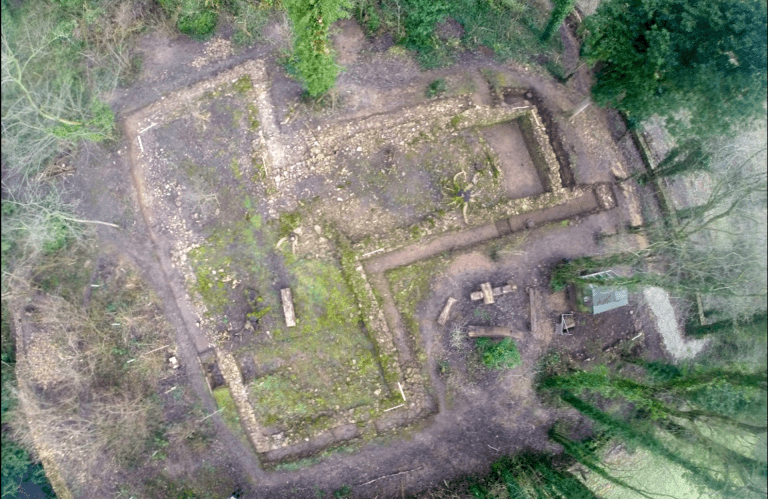Fieldwork
This listing expired on May 2, 2024. Please contact bristol-summer@bristol.ac.uk for any updated information.

Location: Bristol, UK
Season: June 16, 2024 to June 29, 2024
Session Dates: Sunday 16th June - Saturday 29th June 2024
Application Deadline: May 2, 2024
Deadline Type: Exact Date
Website: https://www.bristol.ac.uk/centre-for-study-abroad/inbound/summer-school/undergraduate/archaeology/
Program Type:
Field School
RPA Certified:
No
Affiliation:
University of Bristol
Project Director:
Dr. Stuart Prior
Project Description:
Researching the Anarchy Period in one of Britain’s most spectacular historical landscapes
The UK’s Anarchy period (1135-1153 CE) was a time of rivalry, fear, and violence as Empress Matilda and King Stephen fought each other for the united throne of England and Normandy. The story began with the drowning of Henry I’s legitimate son and heir, William Adelin, in a shipwreck in 1120, and Henry’s attempts to ensure his daughter, Matilda, became recognised as his heir instead. Yet when Henry died in 1135, Henry’s nephew, Stephen of Blois, seized the throne. In 1139, Matilda, with the help of her half-brother, Robert of Gloucester, launched an all-out campaign to claim the crown. The conflicts that ensued across plunged the country into civil war. In response to the crisis, defensive castles were constructed by nobles, and churches were fortified. Rivals to Stephen set up their own mints and produced new coinage, generating economic confusion. Meanwhile, the peasantry suffered deprivation as armies criss-crossed the country, ravaging land and burning property.
Archaeological research on the Anarchy Period to date has focused mainly upon the castles of this era. This has resulted in a partial understanding of the material record of the period. A unique opportunity now exists to assess the impact of the Anarchy Period on rural populations through excavation and analysis of a twelfth-century building complex in the south Gloucestershire village of Lower Hazel. Through this, we will be able to recognize more substantially the impact the turmoil had on the majority of the population, rather than the minority elites who have been recorded by history. Study of this site is under the auspices of the Hazel Anarchy Research Project (HARP).
HARP comprises a five-year training and community research project based at the Department of Anthropology and Archaeology of the University of Bristol. The project provides undergraduate students with practical archaeological skills and experience as they investigate the social dynamics of the Anarchy Period in the southwest of England through excavation and study of the Lower Hazel complex and its wider landscape. The site is also located in an area with considerable Bronze Age, Iron Age, and Roman evidence, which is also being examined.
HARP fieldwork is part of our undergraduate compulsory six-week training in archaeological survey, excavation and post-excavation methodologies, as well as heritage and community engagement. Achievement follows the BAJR passport skills. HARP also runs an International Field School each July for up to 10 Semester Credits or 18 ECTS. This programme provides a solid grounding in anthropological archaeology theory and practice through industry-leading technical and academic training of students from around the world. HARP also offers an advanced Trainee Supervisor scheme that provides a higher tier of skills training for more experienced students.
Period(s) of Occupation: UK’s Anarchy period (1135-1153 CE) 12th Century https://archaeology.blogs.bristol.ac.uk/hazel-anarchy-research-project/
Project Size: 1-24 participants
Minimum Length of Stay for Volunteers: 2 weeks
Minimum Age: 18+
Experience Required: None, all welcome
Room and Board Arrangements:
Single-room accommodation in a University of Bristol residence
Catered accommodation meal package (breakfast, packed lunch and dinner) throughout your stay
https://www.bristol.ac.uk/centre-for-study-abroad/inbound/summer-school/undergraduate/archaeology/
Academic Credit:
10 University of Bristol credits (UK)
5 ECTS credits
3 US credits
Alex Thompson
University of Bristol
Bristol
United Kingdom
The AIA is North America's largest and oldest nonprofit organization dedicated to archaeology. The Institute advances awareness, education, fieldwork, preservation, publication, and research of archaeological sites and cultural heritage throughout the world. Your contribution makes a difference.
Notifications